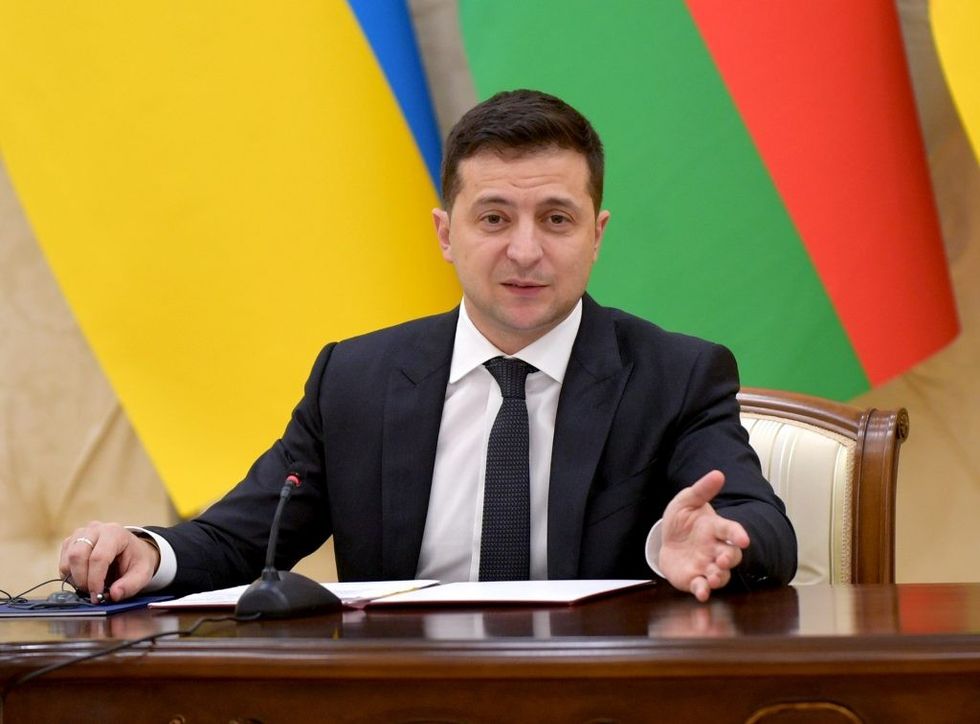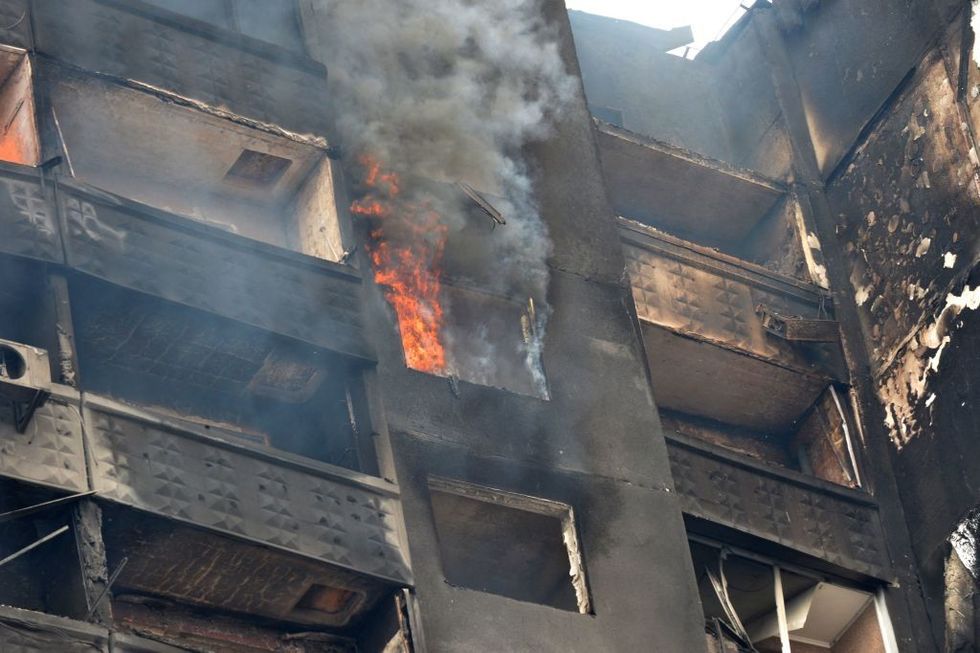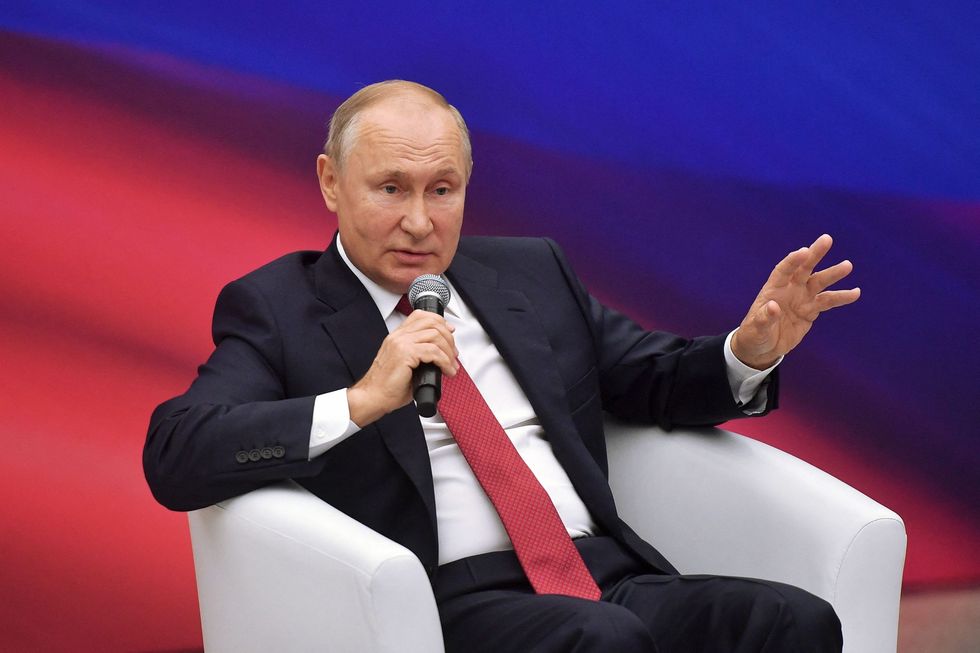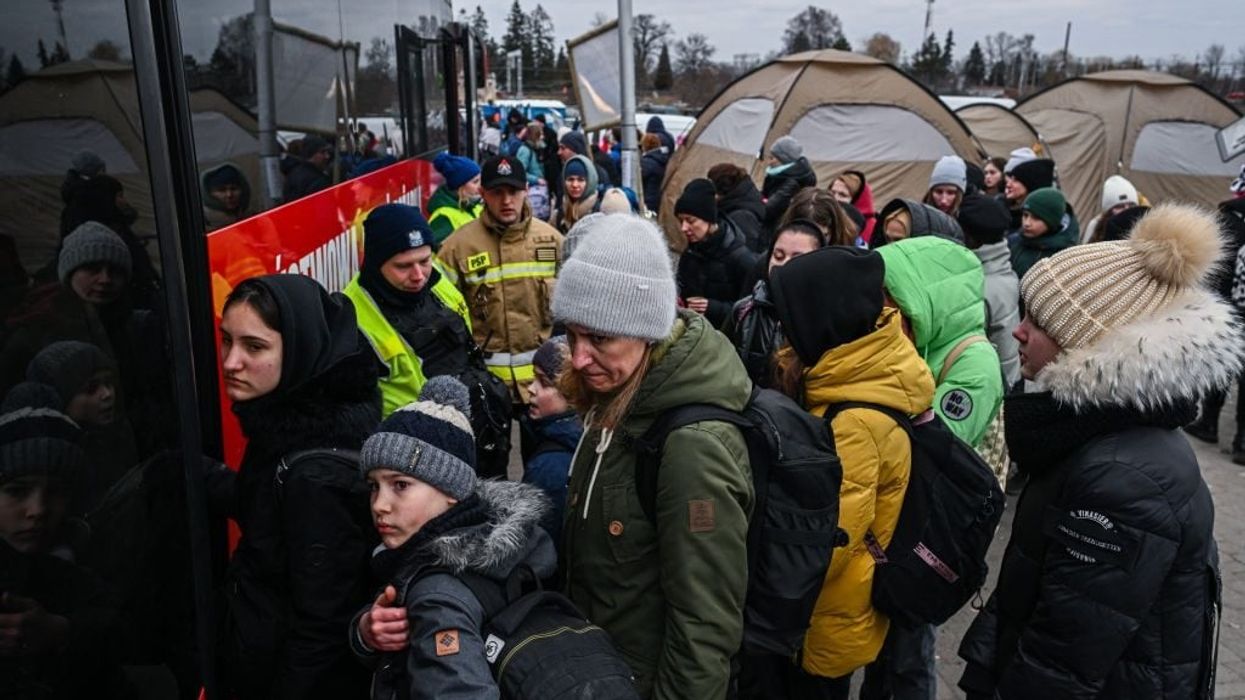RUSSIA announced humanitarian corridors would open in several Ukrainian cities on Monday (7) after terrified civilians came under fire in two previous attempts and with Moscow's forces pummeling cities across the country.
The announcement came after another night of relentless bombardment by Russian forces from the air, land and sea, and with Ukraine's leader accusing Moscow's troops of "deliberate murder" over civilian deaths.
The campaign has pushed more than 1.5 million people across Ukraine's borders as refugees, though many others are displaced internally or trapped in cities being reduced to rubble by Russian bombardment.

International sanctions intended to punish Moscow have so far done little to slow the invasion, and Washington said it was now discussing a ban on Russian oil imports with Europe.
The developments sent the price of Brent crude soaring to near a 14-year high, equity markets plunging and safe-haven investment gold rising above $2,000 (£1518.65).
Also Read | Indian students abroad join forces to help peers in Ukraine
On Monday morning, Moscow's defence ministry announced new plans for humanitarian corridors, but several led into Russia or its ally Belarus, raising questions over the safety of those who might use them.
"Russian forces, for humanitarian purposes, are declaring a 'regime of silence' from 10:00 am on 7 March and the opening of humanitarian corridors," the Russian defence ministry said in a statement.
It listed evacuation routes from the capital Kyiv as well as Mariupol, Kharkiv and Sumy - all of which have been under heavy Russian attacks in recent days.
Moscow said the decision was taken after a "personal request" by French President Emmanuel Macron, who spoke with Russia's Vladimir Putin on Sunday (6).
Two recent attempts to allow thousands of civilians to leave Mariupol have ended in disaster, with civilians under fire and both sides accusing each other of violations.
'They are monsters'
On Sunday, a second evacuation attempt collapsed with the International Committee of the Red Cross saying some 200,000 people were trying to leave and warning of "devastating scenes of human suffering" in Mariupol.
One family which did manage to leave the city described spending a week without heat or electricity and running out of food and water.
"On the road, we saw there were bodies everywhere, Russians and Ukrainians... We saw that people had been buried in their basements."

In other areas over the weekend, civilians came under fire as they tried to leave, including in the town of Irpin outside of Kyiv, where the mayor described seeing two adults and two children killed "in front of my eyes" when a shell hit them.
"It is impudence, they are monsters. Irpin is at war, Irpin has not surrendered," Oleksandr Markushyn said on Telegram, adding that part of the city was in Russian hands.
Journalists saw civilians clambering over a bombed-out bridge as artillery fire sounded around them. The body of a civilian killed while fleeing lay on the road, partially covered with a blanket, next to a grey suitcase.
There was no let-up in the violence overnight into Monday, with air sirens sounding in cities across the country, and intense aerial bombardment in Kharkiv, which has endured almost non-stop fire in recent days.
"The enemy continues the offensive operation against Ukraine, focusing on the encirclement of Kyiv, Kharkiv, Chernihiv, Sumy and Mykolayiv," the General Staff of the Armed Forces of Ukraine said in a statement.
In the south of the country, regional military officials said Russia had shelled the village of Tuzly in the Odessa region from the sea, targeting "crucial infrastructure sites" but causing no injuries.
10,000 arrested in Russia
In Kharkiv, Russian fire hit a university and apartment block in the northeastern city, blowing out all the windows and leaving the facade completed blackened and charred.
In the tangle of splintered wood and mangled metal strewn across the ground in front of the building lay several dead bodies next to a car.
Ukraine's president Volodymyr Zelensky raged Sunday against the growing destruction and death toll, accusing Russian troops of "murder, deliberate murder".
"We will not forgive, we will not forget, we will punish everyone who committed atrocities in this war on our land," he said.
Twelve days of fighting have killed hundreds of civilians and wounded thousands. An unending stream of people - mostly women and children - has poured into neighbouring countries in what the UN calls Europe's fastest-growing refugee crisis since World War II.
Western allies have imposed unprecedented sanctions against businesses, banks and billionaires in a bid to choke the Russian economy and pressure Moscow to halt its assault.
But Russian president Vladimir Putin has equated global sanctions with a declaration of war and warned that Kyiv is "putting in question the future of Ukrainian statehood".
Moscow has been forced to restrict sales of essential goods to limit black-market speculation, while on Sunday payment giant American Express halted operations there, a day after Visa and Mastercard announced similar steps.
Despite harsh punishments for those voicing dissent, protests in Russia against the Ukraine invasion have continued, with more than 10,000 people arrested since the operation began.
Putin vows 'neutralisation'
Putin has pledged the "neutralisation" of Ukraine "either through negotiation or through war", and expectations remain low for a third round of Russian-Ukrainian talks set for Monday.

NATO allies have so far rebuffed Ukraine's calls for a no-fly zone, with one senior US senator, Marco Rubio, saying Sunday that it could lead to "World War III" against nuclear-armed Russia.
Putin has threatened "colossal and catastrophic consequences not only for Europe but also the whole world" if a no-fly zone is imposed.
Kyiv also has urged the West to boost its military assistance, with Zelensky pleading for Russian-made planes that his pilots are trained to fly.
A barrage of Russian missiles destroyed an airport in central Ukraine's Vinnytsia, said Zelensky, underscoring his appeal for help.
Moscow has also warned Ukraine's neighbours against hosting Kyiv's military aircraft, saying they could end up involved in armed conflict.
Weapons, ammunition and funds have poured into Ukraine from Western allies as they seek to bolster Kyiv.
US secretary of state Antony Blinken said Washington was "working actively" on a deal with Poland to supply it with American jets.
There are also ongoing concerns about the safety of Ukraine's nuclear sites after the Russian attack on Friday (4) on the Zaporizhzhia nuclear power plant - Europe's largest.
The UN nuclear watchdog has expressed "grave concern" about the situation at the plant, and France said it would include iodine tablets, which help protect against the effects of radiation exposure, to Ukraine along with other medical supplies.
(AFP)




